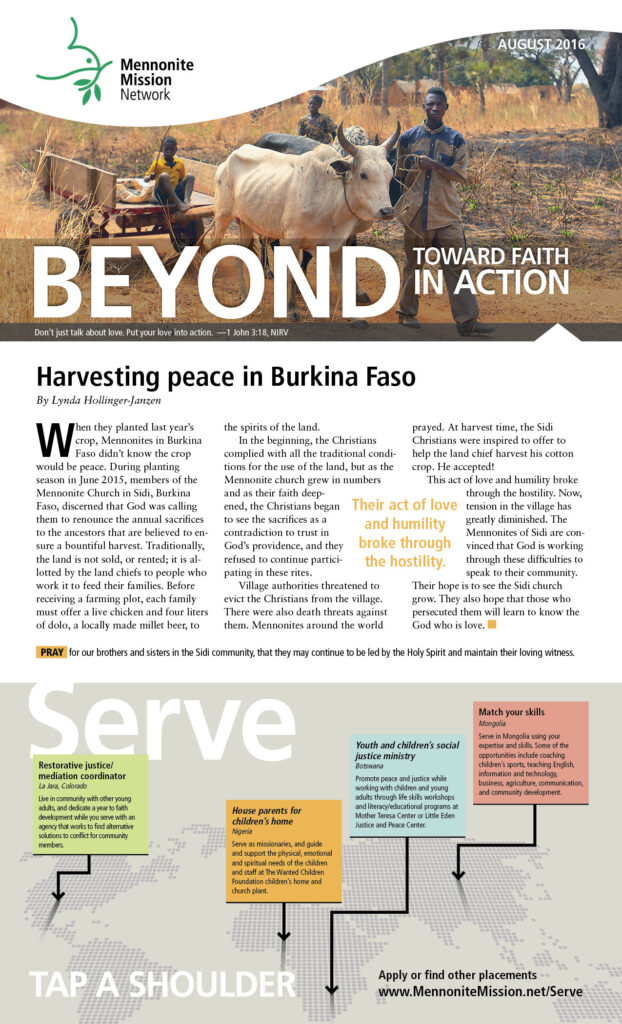By Lynda Hollinger-Janzen
When they planted last year’s crop, Mennonites in Burkina Faso didn’t know the crop would be peace. During planting season in June 2015, members of the Mennonite Church in Sidi, Burkina Faso, discerned that God was calling them to renounce the annual sacrifices to the ancestors that are believed to ensure a bountiful harvest. Traditionally, the land is not sold, or rented; it is allotted by the land chiefs to people who work it to feed their families. Before receiving a farming plot, each family must offer a live chicken and four liters of dolo, a locally made millet beer, to the spirits of the land.
In the beginning, the Christians complied with all the traditional conditions for the use of the land, but as the Mennonite church grew in numbers and as their faith deepened, the Christians began to see the sacrifices as a contradiction to trust in God’s providence, and they refused to continue participating in these rites.
Village authorities threatened to evict the Christians from the village. There were also death threats against them. Mennonites around the world prayed. At harvest time, the Sidi Christians were inspired to offer to help the land chief harvest his cotton crop. He accepted!
This act of love and humility broke through the hostility. Now, tension in the village has greatly diminished. The Mennonites of Sidi are convinced that God is working through these difficulties to speak to their community. Their hope is to see the Sidi church grow. They also hope that those who persecuted them will learn to know the God who is love.
Pray for our brothers and sisters in the Sidi community, that they may continue to be led by the Holy Spirit and maintain their loving witness.
3 ways to listen for peace
Contributed by Jason Boone, coordinating minister for the Peace and Justice Support Network
How we listen can make a difference in the result of a difficult conversation. Here are three ways to listen:
1. Stay in the present. Disagreements tend to put us in time machines. We think back to previous times when we had conflict, or project doomsday scenarios. Most real-life disagreements can be solved, or a way to coexist can be found. Imaginary ones are impossible to unravel!
2. Make a commitment not to fix. It’s tempting to view conversations as a chance to "fix" the other person’s mistaken view. Fight this urge! Seeking to correct someone else’s view is a sure way to make them retrench.
3. Turn to wonder. If things get rough and you find yourself defensive or judgmental, ask yourself, "I wonder how they came to this belief?" Or "I wonder how this makes them feel?" These wonderings help keep us from making quick, often harsh judgments, and keep the paths toward reconciliation and understanding clear.
Try these three listening tools with a difficult co-worker or friend. I bet you’ll notice a big difference in the conversation.

